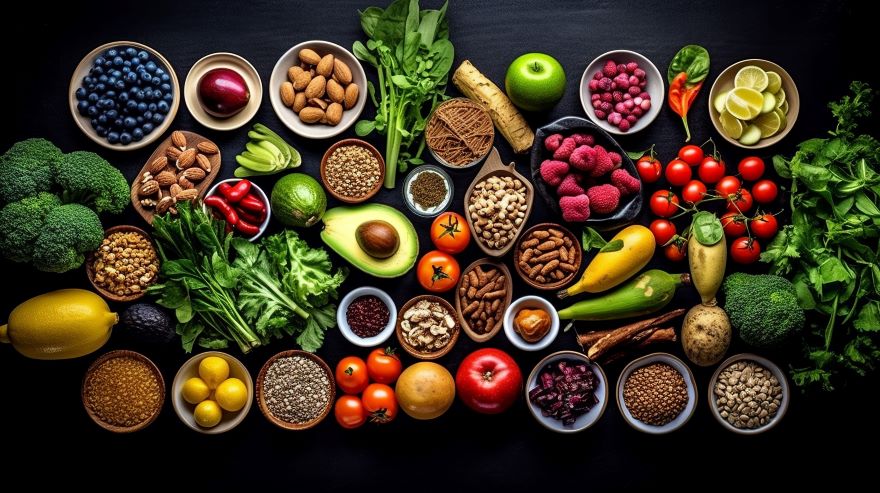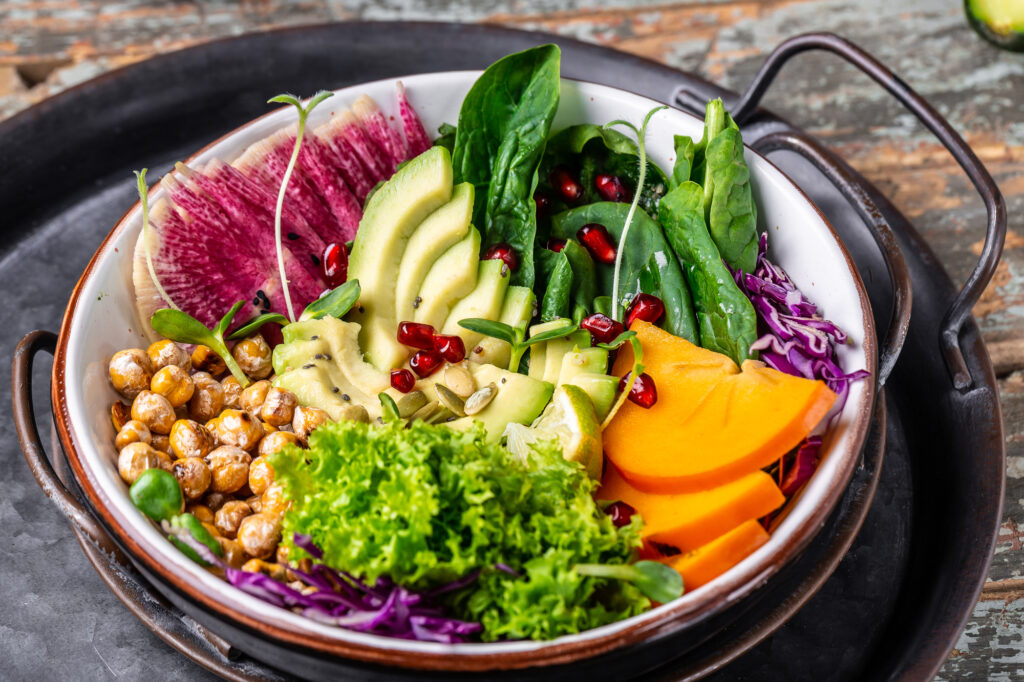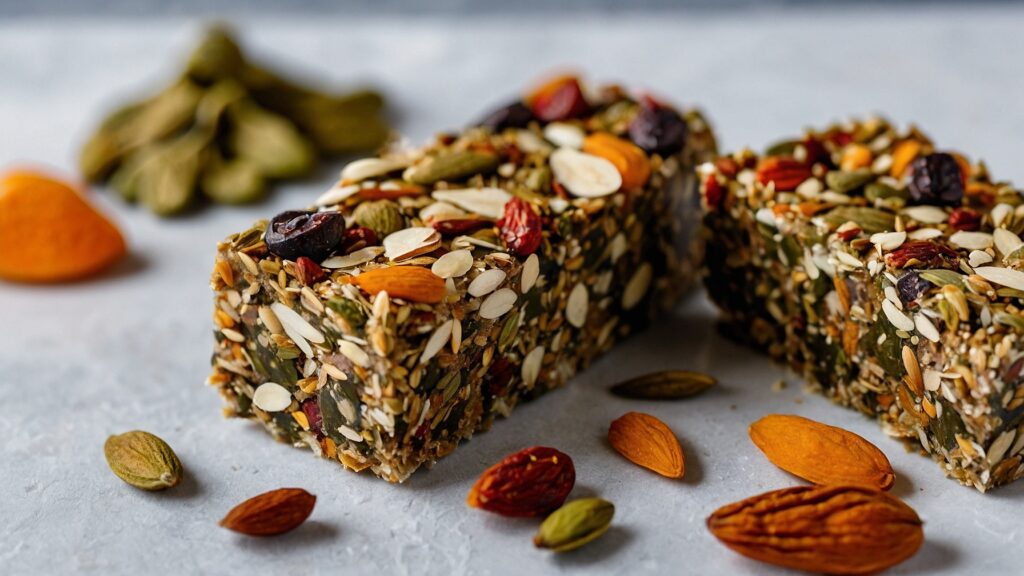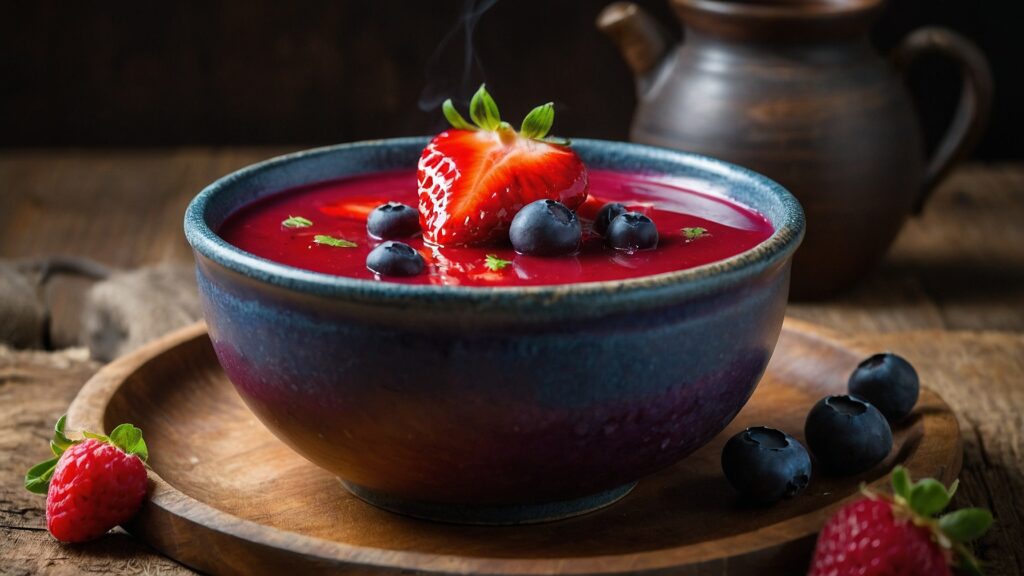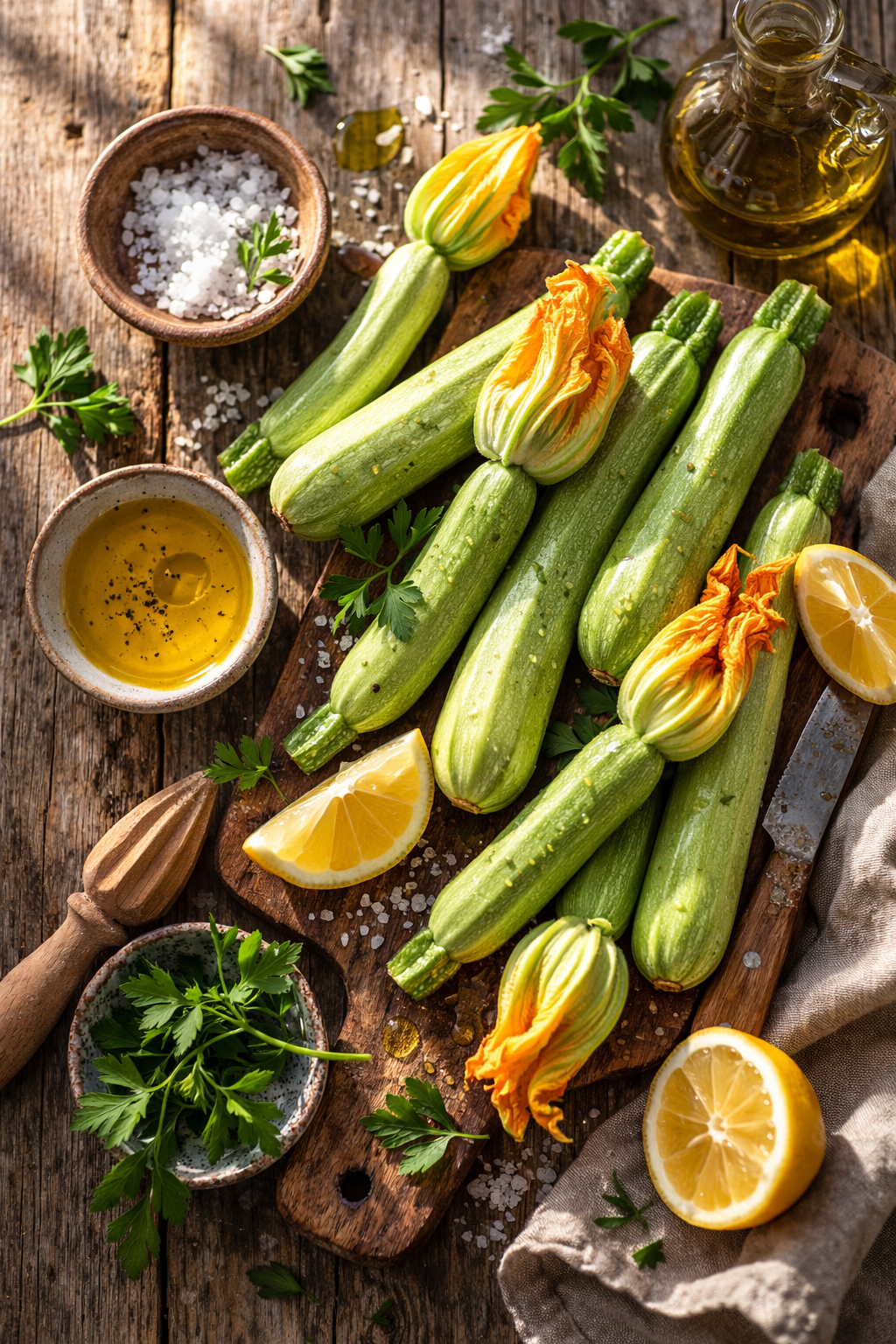I’ve noticed that superfoods, in their natural form, have become popular in the health and nutrition world. As I’m always looking for ways to improve my diet and well-being, I’ve found that highly nutritious foods can boost my energy levels and help me maintain a healthy lifestyle. When I talk about “superfoods,” I’m referring to things like fruits, vegetables, seeds, and other natural goodies packed with vitamins, minerals, and antioxidants—everything you need for a balanced and nourishing diet.
What I love about superfoods is their nutritional value and their pure, untouched state. By eating them raw, I get to keep more of the vitamins and minerals that might be lost when cooking. Plus, raw superfoods often have higher levels of healthy fats, fiber, and other key nutrients that support my vibrant and active lifestyle.
Key Takeaways
- Raw superfoods are nutrient-dense foods that provide numerous health benefits when included in a balanced diet
- Eating superfoods in their raw form helps retain more of their essential vitamins, minerals, and antioxidants
- A variety of raw fruits, vegetables, and seeds can be incorporated into your daily meals for increased energy and better overall health.
Understanding Superfoods
Instead of chasing trendy superfoods, let’s explore the power of whole, unprocessed foods. These nutritional power players can revolutionize the way you think about food. Let me tell you what makes these foods so special and how they can completely change your approach to food.
What Sets Superfoods Apart?
- Nutrient Richness: Superfoods give you loads of nutrition without piling on the calories.
- Plant-Powered: Most superfoods hail from plants like fruits, vegetables, nuts, and seeds.
- Packed with Antioxidants: These foods are brimming with antioxidants that shield our bodies from radicals responsible for aging and diseases.
- Fiber, Vitamins, and Minerals Galore: Superfoods are bursting with nutrients like fiber, vitamins, and minerals that help our bodies function optimally.
My Go-To Superfoods
Here are some superfoods I swear by and how they benefit my health:
- Dark Leafy Greens (Spinach and Kale)
- High in vitamin A, vitamin C, and calcium.
- Excellent for boosting immune function and bone health.
- Berries (Blueberries and Goji Berries)
- Loaded with antioxidants that combat aging and support brain health.
- Nuts (Almonds and Walnuts)
- Rich in healthy fats and fiber, supporting heart health and aiding digestion.
- Seeds (Flaxseeds and Chia Seeds)
- High in omega-3 fatty acids, which reduce inflammation and lower the risk of heart disease.
The Benefits of Raw Superfoods
I chose to consume superfoods in their raw form, which amplified their benefits. Here’s why:
- Preservation of Nutrients: Raw foods retain more vitamins, minerals, and antioxidants that can be lost during cooking.
- Increased Energy Levels: Raw superfoods are easier to digest, helping my body convert them into energy efficiently.
- Better Heart Health: Foods like flaxseeds and chia seeds, rich in omega-3 fatty acids, help reduce inflammation and lower cholesterol levels.
- Cancer Prevention: The antioxidants in raw superfoods like blueberries and kale can neutralize free radicals, potentially preventing cancer.
How I Incorporate Raw Superfoods into My Diet
I’ve found simple and delicious ways to include these nutrient-dense foods in my meals:
- Smoothies and Juices: I toss blueberries and chia seeds into my oatmeal or blend them into a smoothie. This is one of my favorite beverages.
- Salads and Grain Bowls: I love sprinkling hemp seeds and avocado on toast, salads, and wraps to add a boost of plant-based protein and healthy fats.
- Snacking: I enjoy raw nuts and seeds, dark chocolate-covered almonds, or energy bars made from these ingredients.
For those looking for a convenient way to incorporate multiple raw superfoods into their diet, the Navitas Organics Superfood+ Adaptogen Blend is an excellent choice. This blend contains a variety of organic, raw superfoods like maca, cacao, and ashwagandha, which work together to support overall wellness and vitality. The blend is vegan, gluten-free, and non-GMO, making it suitable for various dietary needs. Simply add a scoop of the blend to your smoothies, oatmeal, or other recipes for a nutrient-dense boost.
- 3 Ingredients Scoop + Blend
- Combat Stress & Fatigue
- Maca + Reishi + Ashwagandha
- Navitas (Nuh-Vee-Tus) Is Latin For Energy. We Search The Globe For The Highest-Quality Organic Superfoods To Keep You Energized. What'S More, We Work Hard To Power The Positive In All We Do As A Company, Celebrating Healthy Foods And Supporting Sustainable Causes.
- Plant Based | Ancient Treasure | Nutrient Dense
Balanced Nutrition is Key
While superfoods are fantastic, it’s important to remember they should be part of a varied diet. A well-rounded plate that includes a mix of different foods ensures I get all the nutrients my body needs.
“By eating many fruits and vegetables in place of fast food and junk food, people could avoid obesity.” – David H. Murdock
The Impact on My Well-Being
Incorporating superfoods into my daily meals has enriched my diet and improved my physical health. Here’s what I’ve noticed:
- Higher Energy Levels: I feel more energetic and ready to tackle my day.
- Improved Heart Health: Regular consumption of omega-3-rich foods has kept my heart healthy.
- Preventive Health: The antioxidants in my diet aid in fortifying my defenses against various ailments
Types of Superfoods
Berries and Fruits
Berries and fruits are my go-to superfoods because they are both nutritious and delicious. They are packed with essential vitamins, minerals, and antioxidants that our bodies crave.
Blueberries: These little berries are bursting with antioxidants, which help protect my body from damage caused by free radicals.
Acai Berries: I’ve recently discovered acai berries and love their nutrient-rich profile.
An alternative way to consume superfruits in a concentrated form is with organic acai berry powder. Rich in antioxidants and healthy fats, this versatile powder can be easily added to smoothies, yogurt, or oatmeal for a nutritious boost.
- Terrasoul Superfoods Acai Berry powder, 8-ounces (2 - 4 oz Packages)
- 100% Certified Organic, Non-GMO, Raw, Gluten-Free, Vegan
- Acai powder is loaded with antioxidants, an optimal combination of essential amino acids and is packed with monounsaturated and polyunsaturated fatty acids
- A good source of vitamin C and contains many other micro-nutrients including ployphenols and flavonoids
- A perfect addition to yogurt, smoothies, shakes and many other recipes
Strawberries: Packed with vitamin C, they add a sweet and tangy flavor to my meals.
Raspberries: A great source of fiber and vitamins, perfect for a healthy snack.
Blackberries: Rich in vitamins C and K, they are a tasty addition to my diet.
Pomegranates: These jewel-like seeds are loaded with antioxidants and vitamins.
Vegetables
Vegetables are the backbone of my healthy eating plan, and many of them qualify as superfoods due to their exceptional nutritional value.
- Spinach: This leafy green is rich in iron, magnesium, and vitamins A and K. I add it to smoothies, salads, and even omelets.
- Kale: Known for its high levels of vitamins A, C, and K, plus calcium and iron, kale is a staple in my diet.
- Broccoli: I love its crunch and its high vitamin C content, along with fiber, calcium, and folate.
- Swiss Chard: Packed with vitamins A, C, and K, and magnesium, it’s a versatile veggie I enjoy in many dishes.
- Collard Greens: High in vitamins A, C, and K, these greens are great sautéed or added to soups.
- Brussels Sprouts: These tiny cabbages are rich in fiber and vitamins C and K.
- Bell Peppers: Red and green bell peppers are high in vitamin C and add a sweet crunch to salads and stir-fries.
Nuts and Seeds
Nuts and seeds are small but mighty when it comes to nutrition. They are rich in healthy fats, proteins, and various essential nutrients.
Walnuts: Known for their high omega-3 fatty acid content, they make a great snack.
Almonds: Packed with vitamin E and healthy fats, almonds are a favorite of mine.
Pistachios: These are not only delicious but also provide a good amount of protein and fiber.
Flaxseeds: I sprinkle these on my cereal for a boost of omega-3s, fiber, and protein.
Chia Seeds: These tiny seeds are high in omega-3s, fiber, and protein. I love adding them to smoothies and yogurt.
For an easy way to incorporate omega-3 fatty acids, fiber, and protein into your diet, organic raw chia seeds are an excellent choice. These versatile seeds can be added to smoothies, yogurt, or used in baking.
- PREMIUM ORGANIC CHIA SEEDS - Sunfood Superfoods Raw Organic Chia Seeds are naturally rich in omega-3. Made with premium chia seeds and no additives for superior taste and nutrition
- RICH IN NUTRITIONAL BENEFITS - Besides being a natural source of Omega 3 and Omega 6 Fatty Acids, chia seeds are also an excellent source of Magnesium and dietary fiber to promote healthy digestion
- VERSATILE USES - Our ground organic chia seeds are perfect for adding a nutritional boost to your favorite meals. Make chia pudding, add to baked goods, or blend them in a smoothie
- CERTIFIED ORGANIC & NON GMO - Sunfoods Raw Organic Chia Seeds are certified USDA Organic and Non GMO. They're also Raw, Vegan, Kosher, and ethically sourced
- ABOUT SUNFOOD - We are a family-owned company based in San Diego, dedicated to creating supplements & nutritious snacks. We use ethically sourced natural ingredients & never compromise on quality
Hemp Seeds: Rich in protein and omega-3s, they add a nice texture to salads and bowls.
Fish and Dairy
Fish and dairy products also make the superfood list for their nutrient profiles and health benefits.
- Salmon: This fish is a top choice for its high omega-3 fatty acids, which support heart and brain health.
- Mackerel: Packed with omega-3s and vitamin D, it’s a tasty and nutritious option.
- Sardines: These small fish are rich in omega-3s and calcium.
- Eggs: A versatile and nutrient-dense food, eggs provide high-quality protein, choline, and vitamin D.
- Milk: An excellent source of calcium and protein, milk is a staple in my diet.
- Yogurt: I enjoy yogurt for its probiotics, which support gut health, along with its calcium and protein content.
Overall, incorporating a variety of these superfoods, whether it be fruits, vegetables, nuts, seeds, fish, or dairy, can significantly contribute to a balanced, healthy diet.
Meal Ideas with Superfoods
Trying out new recipes has made it easier to include superfoods in my diet:
- Breakfast: Overnight oats with chia seeds, almonds, and goji berries.
- Lunch: Kale and quinoa salad with roasted beets, walnuts, and feta cheese.
- Dinner: Broccoli and spirulina stir-fry with brown rice and tofu.
Snacks: Celery and carrot sticks with hummus, sprinkled with pumpkin seeds.
Tracking Your Superfood Intake
I keep a food diary or use a smartphone app to track my superfood intake to stay on top of my health goals. This helps me stay accountable and intentional with my food choices, making sure I get the most out of these nutrient-dense foods.
Final thoughts
Congratulations on discovering the vibrant world of superfoods! Incorporate these nutrient powerhouses into your diet to set yourself on the path to a healthier, more energetic you. Start your day with a handful of antioxidant-rich goji berries, enjoy a protein-packed quinoa salad for lunch, and add chia seeds to your smoothies for a boost of heart-healthy omega-3 fatty acids. Each bite nourishes your body while treating your taste buds.
The real magic lies in consuming these superfoods raw and unprocessed, maximizing their nutritional benefits. They enhance your diet, supporting overall health without overshadowing other essential foods. I’ve felt the transformation – more energy, a stronger immune system, improved digestion, and a vibrant sense of well-being. Ready to experience these benefits yourself? Dive into the superfood adventure and unleash your inner health superhero. You won’t look back!
Here are some more amazing superfood recipes
Frequently Asked Questions
What are the top raw superfoods to include in my diet?
In my experience, some of the best raw superfoods to incorporate into your diet include leafy greens like kale and spinach, berries like blueberries and goji berries, nuts like walnuts and almonds, and seeds like chia and flaxseeds. Additionally, spirulina and other nutrient-packed algae make fantastic raw superfoods choices. These foods are rich in vitamins, minerals, and antioxidants, and they provide numerous health benefits when consumed as part of a balanced diet.
How can raw superfoods benefit my health?
Raw superfoods can have a significant impact on your overall health due to their high nutrient density. They typically contain essential vitamins and minerals that may help boost your immune system, support digestion, and promote optimal cognitive functioning. Many raw superfoods are high in antioxidants, which can help protect your cells from damage caused by free radicals. As a bonus, consuming diverse raw superfoods can contribute to a balanced and varied diet that supports long-term well-being.
How often should I consume raw superfoods?
Ideally, I believe it’s best to include raw superfoods in your daily meals and snacks whenever possible. Including a variety of raw superfoods in your diet regularly can help ensure that you’re getting a well-rounded spectrum of nutrients. However, it’s essential to maintain a balanced diet and not solely rely on raw superfoods for your nutritional intake. Incorporate raw superfoods into your meals and snacks in moderation, combining them with other whole foods for a nutritious and diverse diet.
Are there any risks associated with eating raw superfoods?
While most raw superfoods are safe for consumption, eating specific raw foods or consuming them in excessive amounts may pose some risks. For example, raw kale can interfere with thyroid function if eaten in large quantities. Certain nuts and seeds may cause allergies or digestive issues when consumed as raw superfoods, especially for the unaccustomed. Listen to your body and consult a healthcare professional if you have concerns or experience adverse reactions with raw superfoods.
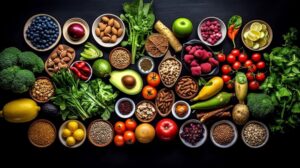
*We may earn a commission for purchases made using our links. Please see our disclosure to learn more.

